Our Staff
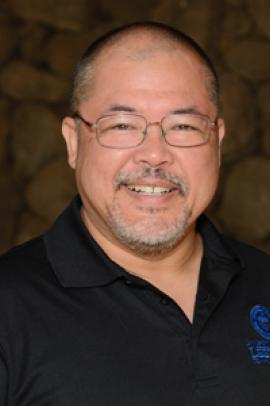
Camden Barruga
Media Specialist
camden@hawaii.edu
Phone: (808) 455-0604
Office: LC 116
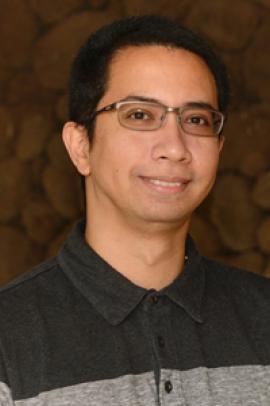
Garrett Chaves
Electronics Technician
gchaves@hawaii.edu
Phone: (808) 455-0219
Office: LC 116
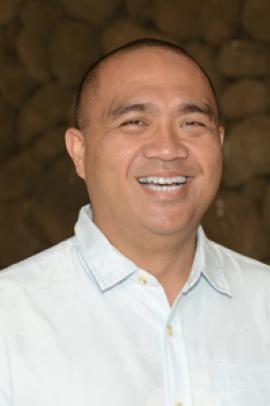
Ron Felipe
Copy Center Manager
felipe@hawaii.edu
Phone: (808) 455-0323
Office: GT 105
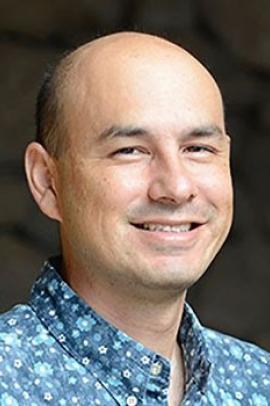
Brent Hirata
Professor, CC – Instructional Designer
bhirata@hawaii.edu
Phone: (808) 455-0484
Office: LC 112
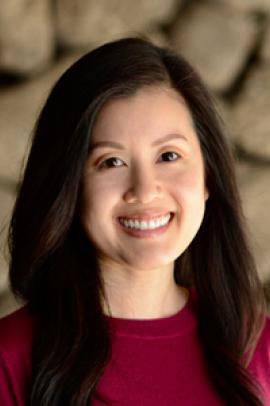
Rachael Inake
Professor, CC – EMC Coordinator and Instructional Designer
rinake@hawaii.edu
Phone: (808) 455-0677
Office: LC 116
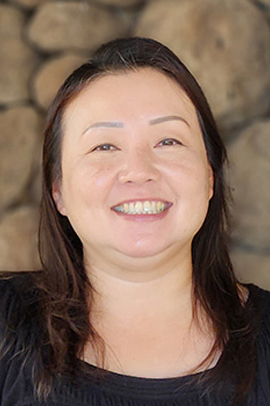
Deanne Ishida
Administrative Assistant
deanned@hawaii.edu
Phone: (808) 455-0222
Office: LC 116

Lauren Lum Ho
Instructor, CC – Instructional Designer
laurenlh@hawaii.edu
Phone: (808) 455-0551
Office: LC 112
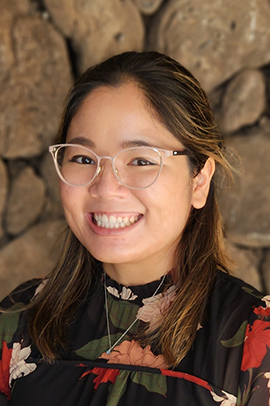
Chelby Onaga
Media Specialist (Temp)
chelbyo@hawaii.edu
Phone: (808) 455-0676
Office: LC 112
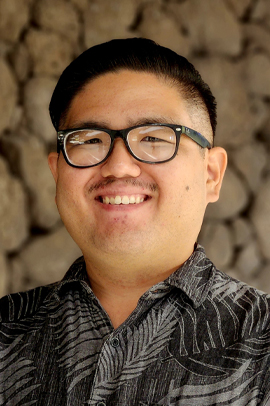
Jordan Teruya
Media Specialist (Temp)
Hawaiʻi Education Network Consortium (HENC Grant)
jordanst@hawaii.edu
Phone: 808-455-0396
Office: LC 116
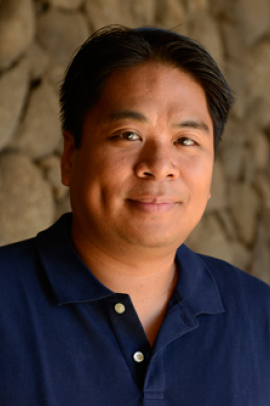
Iban Urmeneta
Electronics Technician
ibanu@hawaii.edu
Phone: (808) 455-0203
Office: LC 116
TPACK Framework
The Educational Media Center has adopted the TPACK Framework (Koehler, Mishra 2009) believing at the heart of good teaching with technology there are three core components: Content, Pedagogy and Technology. Equally important are the relationships between these three components.
Our goal is to partner with instructors to find ways for instructors to represent concepts with technologies and apply pedagogical techniques that use technologies in constructive ways to help students achieve learning outcomes.
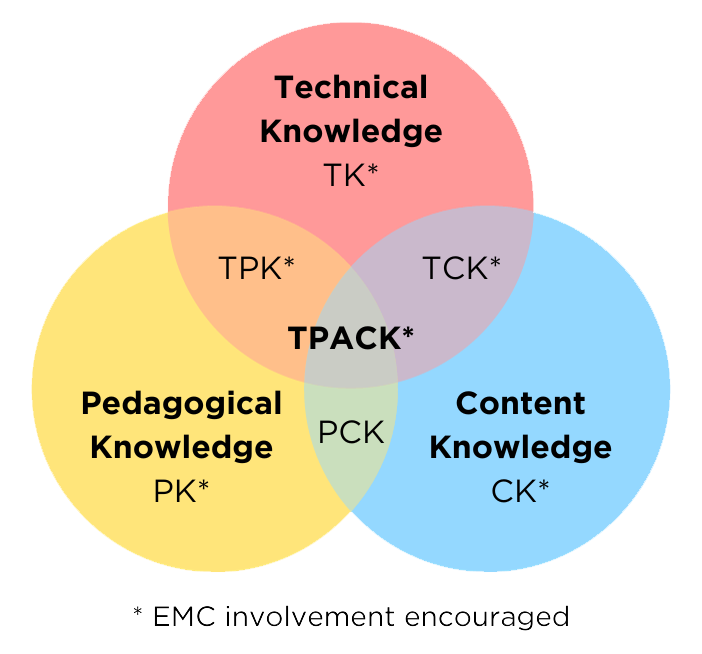
What is a great teacher in the 21st century?
The issue of what instructors need to know about technology for effective teaching has been the center of intense debate for many years (e.g., Handler and Strudler, 1997, National Council for Accreditation of Teacher Education, 1997).
The EMC has adopted the TPACK Framework (Koehler, Mishra 2009) believing at the heart of good teaching with technology there are three core components: Content, Pedagogy & Technology. Equally important are the relationships between these three components. Great teachers consciously and unconsciously simultaneously integrate technology, pedagogy and content every time they teach.
Keep your Student record updated
- Make sure you’re going to meet all of your degree requirements.
Keep your student record updated.
Description of TPACK diagram
Content Knowledge (CK)
Content knowledge about the actual subject matter. Content varies greatly by subject matter and the instructor is the subject matter expert.
Pedagogical Knowledge (PK)
Pedagogical Knowledge is knowledge about the processes and practices or methods of teaching and learning. This is a form of knowledge that is involved in all issues of student learning, classroom management, lesson development and implementation, and student evaluation. It includes knowledge about techniques or methods to be used in the classroom; the nature of the target audience; and strategies for evaluating student understanding. An instructor with pedagogical knowledge understands how students construct knowledge and acquire skills; develop habits of mind and positive dispositions towards learning. The EMC offers professional development opportunities to help instructors to apply pedagogical knowledge to improve teaching and learning.
Technology Knowledge (TK)
Technical Knowledge is knowledge about standard technologies such as books and chalk and blackboard, as well as more advanced technologies such as the Internet and digital video. This involves skills to operate particular technologies. The EMC can help you learn these skills.
Technological Content Knowledge (TCK)*
Technical Content Knowledge is an understanding of the manner in which technology and content influence and constrain one another. Instructors need to master more than the subject matter they teach, they must also have a deep understanding of the manner in which the subject matter can be changed by the application of technology. Instructors need to understand. The EMC can help you understand which specific technologies are best suited for addressing subject-matter learning in their domains and how the content dictates or perhaps even changes the technology—or vice versa.
Pedagogical Content Knowledge (PCK)*
Pedagogical Content Knowledge considers the relationship between content and pedagogy, the key question is how disciplines differ from each other and whether disciplines can or should be taught through the same instructional strategies. If disciplines are the same, then mathematics can be taught using the same instructional strategies that we use to teach architecture or music. On the other hand, differences between the disciplines would suggest the need to teach them differently. The EMC advocates PCK in which instructors interpret subject matter, find multiple ways to represent it, and adapt instructional materials to alternative conceptions and students’ prior knowledge.
Technical Pedagogical Knowledge (TPC)*
Technological pedagogical knowledge is an understanding of how teaching and learning changes when particular technologies are used. This includes knowing the pedagogical affordances and constraints of a range of technological tools as they relate to disciplinarily and developmentally appropriate pedagogical designs and strategies. The EMC partners with instructors to gain a deeper understanding of the constraints and affordances of technologies and the disciplinary contexts within which they function.
Technological Pedagogical Content Knowledge (TPACK)*
Technological Pedagogical Content Knowledge is the intersection of all three bodies of knowledge and what we strive toward. Understanding of this knowledge is above and beyond understanding technology, content, or pedagogy in isolation, but rather as an emergent form that understands how these forms of knowledge interact with each other.
